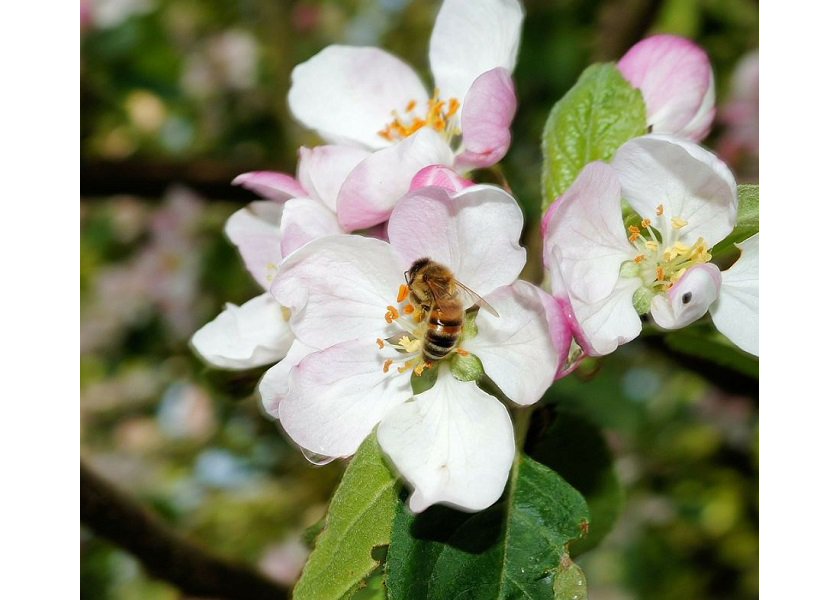Honeybees Get Hope from New Vaccine against American Foulbrood Disease

Dalan Animal Health, Inc. ("Dalan"), a biotech company pioneering insect health, announced today that the U.S. Department of Agriculture (USDA) granted a conditional license for vaccination of honeybees against American Foulbrood disease caused by Paenibacillus larvae.
Honeybees are a critical component of agriculture.
One-third of the global food supply relies on pollination, and healthy commercial hives are essential to secure high crop yields. However, honeybees are plagued by American Foulbrood, with previously no safe and sustainable solution for disease prevention. Overt clinical cases of American Foulbrood are notifiable in the USA and Canada, and the only treatment method relies on the incineration of bees and infected hives and equipment.
"This is an exciting step forward for beekeepers, as we rely on antibiotic treatment that has limited effectiveness and requires lots of time and energy to apply to our hives," explained Trevor Tauzer, owner of Tauzer Apiaries and board member of the California State Beekeepers Association. "If we can prevent an infection in our hives, we can avoid costly treatments and focus our energy on other important elements of keeping our bees healthy."
"We are committed to providing innovative solutions to protect our pollinators and promote sustainable agriculture. Global population growth and changing climates will increase the importance of honeybee pollination to secure our food supply. Our vaccine is a breakthrough in protecting honeybees. We are ready to change how we care for insects, impacting food production on a global scale," said Dr. Annette Kleiser, CEO of Dalan Animal Health.
The bacterin was developed by Dalan Animal Health, and is manufactured by Diamond Animal Health (Des Moines, Iowa), a wholly-owned subsidiary of Heska ("Heska"; NASDAQ: HSKA).
"We are grateful for the help and assistance that Diamond has been able to offer - not just in manufacturing development, but also regulatory expertise," said Kleiser. The USDA has issued the conditional license in the first instance for two years. Dalan will distribute the vaccine on a limited basis to commercial beekeepers and anticipates having the vaccine available for purchase in the United States in 2023.
About the vaccine
The vaccine, which contains killed whole-cell Paenibacillus larvae bacteria, is administered by mixing it into queen feed which is consumed by worker bees. The vaccine is incorporated into the royal jelly by the worker bees, who then feed it to the queen. She ingests it, and fragments of the vaccine are deposited in her ovaries. Having been exposed to the vaccine, the developing larvae have immunity as they hatch. Pivotal efficacy studies have indicated that oral vaccination of honeybees may reduce larval death associated with American Foulbrood infections caused by P. larvae. The vaccine is non-GMO and can be used in organic agriculture.
About Dalan Animal Health
Dalan Animal Health (www.dalan.com) seeks to prevent diseases that affect invertebrates to increase the profitability and yield to producers worldwide. The company's platform technology uses a transgenerational immune priming approach whereby the maternal animal passes immune modulators (e.g., antigens, anti-microbial molecules) to the next generation larvae before they hatch. The company intends to use this approach to develop vaccines for other honeybee diseases and underserved industries, such as shrimp, mealworms, and insects used in agriculture. The company's headquarters is in Athens, Georgia, at the University of Georgia's Innovation Hub.







